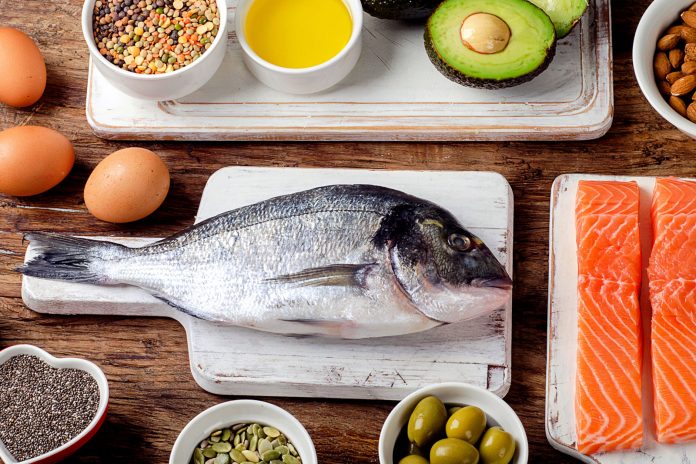Judging by the popularity of avocado toast on Instagram and the proliferation of fancy extra virgin olive oil options at the grocery store, it appears we’ve have finally ditched our fears of “good fats.” (Thank GOD.) After decades of indiscriminately avoiding all fats, we’ve now become versed in the difference between saturated and unsaturated fats, and we’re more than happy to add the latter back into our diets (gotta have that guac, after all).
One of these so-called healthy fats, omega-3 fatty acids are a type of polyunsaturated fat. One Mayo Clinic study of more than 32,000 participants found that consuming more omega-3 fatty acids could reduce “cardiovascular events” (such as a heart attack) by as much as 45 percent, and could lower triglyceride levels by as much as 50 percent. Sounds like a pretty good excuse to order a salmon roll for lunch, right?
Omega-3 fatty acids are critical for your body to function optimally. They help form cell membrane structures, particularly in the brain. A 2015 review of decades of research on the potential benefits of omega-3s noted that adding a few more bites of these fatty acids to your meal plan may help keep your memory and learning sharp by preventing inflammation in the brain as you age.
The most obvious food source of omega-3s is fish, but those swimmers don’t actually make it themselves. Fish get their omega-3s from microalgae in the water, where the fatty acids synthesized originally.
For optimal health, men ages 19 and up need about 1.6 g of omega-3 fatty acids per day, and women need 1.1 g. Pregnant and breastfeeding women need 1.4 g and 1.3 g, respectively.
Before resorting to a fish oil supplement, here are the best sources of omega-3 fatty acids you can try.
- Farmed Atlantic salmon: 2 g of omega-3s in 3 oz
- Anchovy, canned in oil and drained: 1.8 g of omega-3s in 3 oz
- Atlantic herring: 1.8 g of omega-3s in 3 oz
- Atlantic mackerel: 1.1 g of omega-3s in 3 oz
- White tuna, canned in oil and drained: 1 g of omega-3s in 3 oz
That said, you want to choose your fish carefully, as certain types of fish contain high amounts of mercury. The Food and Drug Administration and the Environmental Protection Agency recommend just two to three servings of a variety of fish each week, particularly for women and children. Try this super easy lemon poppy salmon recipe for an easy weeknight dinner (and a heart-healthy dose of omega-3s).

























